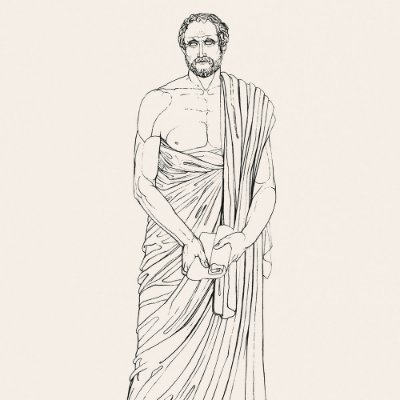“The genius,” wrote German philosopher Arthur Schopenhauer, “lights on his age like a comet into the paths of the planets.”
Throughout history a handful of exceptional individuals have made groundbreaking contributions to their fields, and changed the face of the world. A few names come to mind: Leonardo Da Vinci, Aristotle, Albert Einstein, Mozart, Marie Curie, to name a few.
We recognize genius when we see it, but one question remains unsolved: Are geniuses born or made?
The Origin of Genius
For thousands of years, the Ancients believed that geniuses were a divine gift. 16th-century Italian painter and historian, Giorgio Vasari, once said that his friend and prominent artist Michelangelo, was sent to earth by “the great Ruler of Heaven” to serve as an example of what a true artist should be.
Early Greek thinkers like Aristotle, believed that the abundance of black bile in the body—a symptom of Melancholia, a mental condition characterized by prolonged depression, paranoia and delusion—was the source of creative genius.
But overtime as Western Civilization adopted more scientific and secular ideas, the origin of creative genius lost its divine foundation and instead, took on a new foundation in nature. In his 1790 Critique of Judgement, German philosopher Immanuel Kant wrote, “Genius is the talent (natural endowment)…the innate mental aptitude (ingenium) through which nature gives the rule to art…for producing that for which no definite rule can be given.” In other words, genius is born only through nature and cannot be taught or made.
This idea that genius is born and not made, was popularized by Francis Galton, a prominent nineteenth-century scientist and cousin of famous biologist, Charles Darwin. Galton set out to prove through statistical analysis that genius was inherited as Kant had theorized. In his landmark book, Hereditary Genius (1869), Galton draws on data from the family lineages of exceptional figures throughout history and concluded that they owed their success to genetics alone.
Galton’s ideas not only coined the term “Nature versus Nurture”and pioneered the field of eugenics, but also spurred racial ideology that certain races are superior to others and should only reproduce within their race to preserve their strong genetics.
Despite the popularity of his ideas, Galton and other prominent scientists at the time could not figure out how to accurately identify and measure the qualities of genius, especially those of a child. That is, until 1916 when Lewis M. Terman, a professor at Stanford University, created the IQ test.
Intelligence Is Not Enough
“A nature which, when left to itself, will, urged by an inherent
stimulus, climb the path that leads to eminence.”
– Francis Galton
In 1925, Terman began the first long-term study to prove that intelligence assessed by IQ is the most reliable way to measure and predict genius, so that it could be nurtured. Terman studied the lives of 1,528 children with very high IQs of at least 140, and predicted that the majority of his “Termites” would make significant contributions to their chosen field of work in adulthood. The results of this study were published in a series of reports called the Genetic Studies of Genius.
In 1959, three years after Terman’s death, the final report of the study was published to reveal what happened to the Termites who were now in their mid-40s. At first glance the results looked good: The Termites collectively produced nearly 2000 scientific papers and published several books. But upon close examination, the Termites failed to fulfill Terman’s dreams. The thousands of papers published were produced by only a small handful of men who had become scientists. And the rest of the Termites? At best on average, their lifetime achievements were modest.
To add insult to Terman’s injury, one of the children he tested in the 1920s who failed to meet the Termite IQ requirements grew up to become a pioneer in their field and earn the Nobel Prize in Physics. His name was William Shockley, the co-inventor of the transistor.
Terman’s study set out to reaffirm Galton’s nature over nurture theory, but instead it had unintended consequences. Scientists were left even more puzzled about the origin of genius, and swung the nature versus nurture debate towards the opposite direction.
Genius was no longer born, it was now made.
The 10,000-Hour Myth
In 2008, a recently published non-fiction book called Outliers: The Story of Success, shed light on new ideas which appeared to put the nature-nurture debate to bed. Malcolm Gladwell, the author of this wildly popular book, argued that thousands of hours of practice—specifically ten thousand hours—was the “magic number of greatness.”
Gladwell called this phenomenon the 10,000-hour rule: It takes 10 years of deliberate practice to achieve world-class expertise in any field. According to Gladwell, this explains the extraordinary success of notables from the Beatles to Bill Gates.
The 10,000-hour rule caught on like wildfire. The simple, romantic idea that anyone can achieve greatness through hard work was irresistible to the world. But behind the scenes, the validity of the 10,000-hour rule was under fire from the scientific community. Ironically, the biggest blow to the rule came from the researcher behind the exact study Gladwell used to verify the 10,000-hour rule.
According to K. Anders Ericsson, the researcher and psychologist behind the study, the 10,000-hour rule is a myth: “Malcolm Gladwell read our work, and he misinterpreted some of our findings. We [studied] violinists who had been at an international academy [and were] viewed as being on track for international careers. When we estimated how many hours they had spent working on trying to improve their performance by themselves, we came up with an average, across the group, of 10,000 hours. But that really meant that there was a fair amount of variability.”
The variability of years of deliberate practice for individual violinists within the study is substantial: 5+ years less or more than the 10 year average. In fact, studies have shown that people who take less than 10 years to achieve expertise in a field are more likely to become geniuses and high achievers, than those who take longer than 10 years.
Ironically the often cited case study of Mozart’s genius to back up the 10,000-hour rule, backfires on itself. A close examination of Mozart’s biography will reveal that not only was his father a professional musician and music teacher who trained him, but that Mozart was slow to mature as a composer: it took him nearly 20 years before he composed his first masterpiece.
Another problem with the ‘deliberate practice equals genius’ argument is that it assumes a direct positive relationship between level of expertise and genius, until one has mastered their field. But in reality, too much expertise in one domain may be counterproductive for performance. For example, an artist who only practices one method or genre of painting they have already mastered, is less likely to exhibit high levels of creativity and traits of genius than an artist who practices different methods or genres of painting. In non-creative professions, too much expertise may also increase the likelihood of falling for cognitive biases that lead to bad decisions.
The growing concrete evidence against the 10,000-hour rule suggests that it’s no better an argument to explain the origin of creative genius than Galton’s genetic theories. So where does that leave us in the nature-nurture debate, as it seems that genius is neither born nor made?
Are creative geniuses both born and made? Or is there an essential ingredient missing from this entire puzzle?
Stay tuned for the answers in Part 2 of this series.
Originally published on Mayo Oshin.
Mayo Oshin writes at MayoOshin.com, where he shares well-researched ideas based on science, philosophy and art, for better productivity, creativity and decision-making. To get these ideas to think and live better, you can join his free weekly newsletter here.
Follow us here and subscribe here for all the latest news on how you can keep Thriving.
Stay up to date or catch-up on all our podcasts with Arianna Huffington here.


